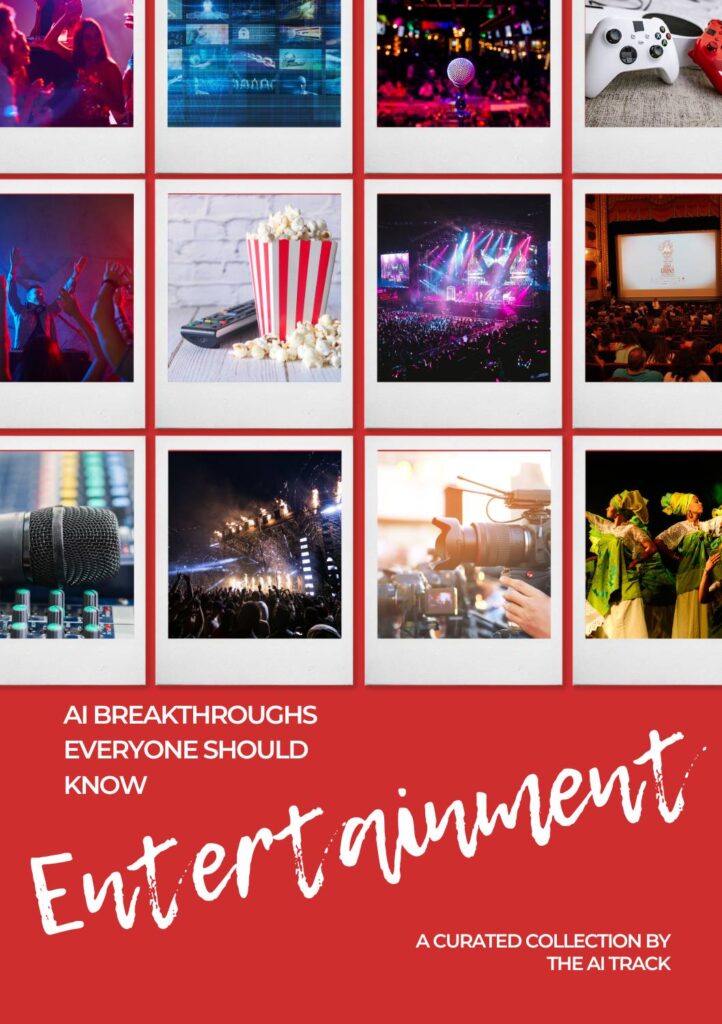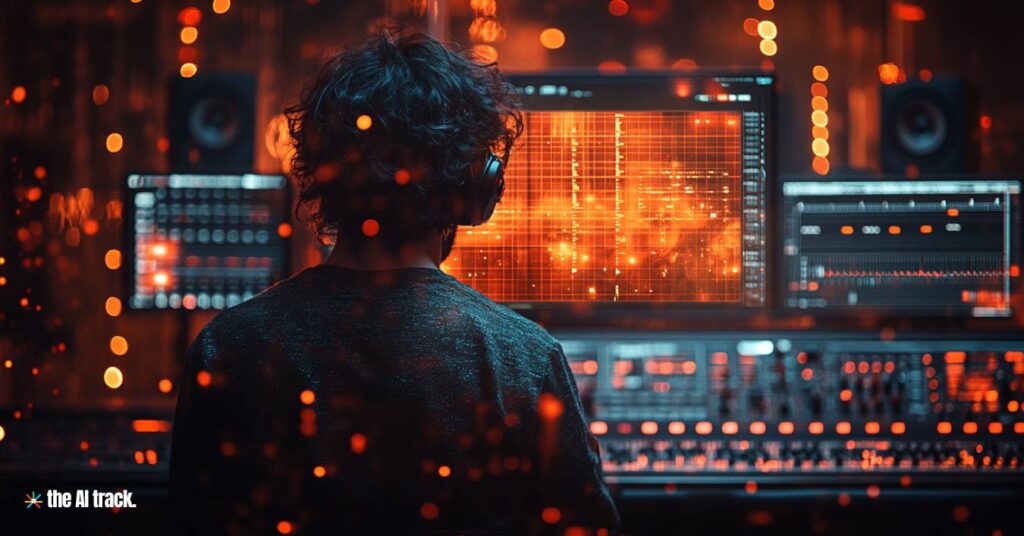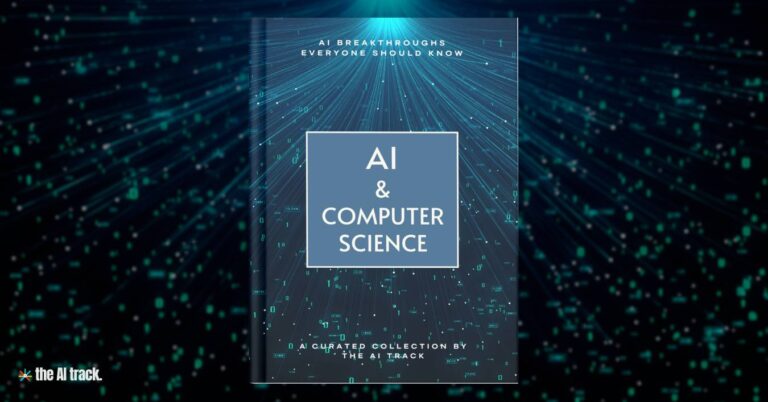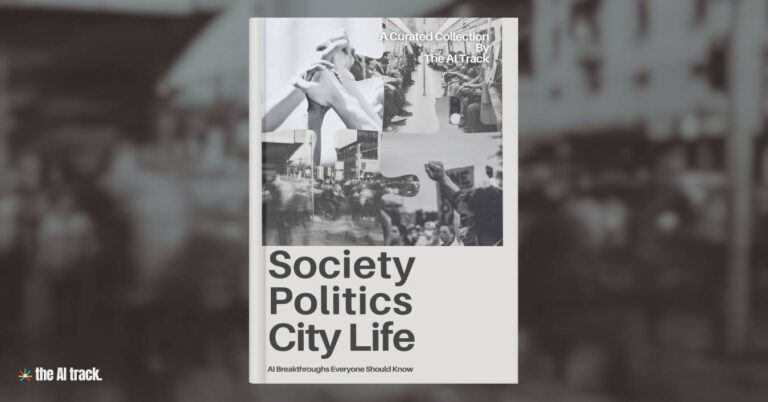
From creative arts to gaming, AI is redefining entertainment. This page highlights the groundbreaking AI applications that are revolutionizing how we create, experience, and interact with entertainment media. Browse through our selection of the most significant AI breakthroughs in entertainment
Browse all the other fields in our curated collection of the most important AI Breakthroughs. Each section offers insights into how AI is transforming different sectors, providing a comprehensive view of its impact across a wide range of disciplines.
AI Breakthroughs in Computer Science - At a Glance
Showrunner, dubbed the "Netflix of AI," is a platform offering AI-generated content across various genres.
Original Article Title:
Meet Showrunner, The ‘Netflix Of AI’ That Turns Viewers Into TV Show Creators
Source: Forbes
Date: 30 May 2024
Key Takeaway
Scientists have utilized generative artificial intelligence (AI) to design antibodies from scratch, marking a significant advancement in antibody development.
Summary
- Researchers have employed generative artificial intelligence (AI) to create entirely novel antibodies, a groundbreaking achievement.
- The modified protein-design tool facilitated this process, offering potential to address challenging drug targets more effectively.
- Despite this milestone, AI-designed antibodies are still distant from practical application in clinical settings.
- References to related studies and articles provide further context and avenues for exploration in the field of structural biology, machine learning, and drug discovery.
- Job listings in the biotechnology and academic sectors indicate ongoing research and opportunities in relevant fields worldwide.
The Tribeca Festival is featuring AI-generated short films as part of its "Sora Shorts" program
Original Article Title:
Tribeca to Screen AI-Generated Short Films Created by OpenAI’s Sora
Source: IndieWire
Date: 31 May 2024
Key Takeaway: The Tribeca Festival is featuring AI-generated short films as part of its “Sora Shorts” program. These films, created using advanced AI tools, explore new frontiers in storytelling and filmmaking, highlighting the creative potential and ethical considerations of AI in the arts.
Key Points:
- Innovative Filmmaking: AI tools are used to generate scripts, visuals, and even entire short films.
- Exploration of AI: The program delves into the capabilities and limitations of AI in creative processes.
- Ethical Discussions: The festival also addresses the ethical implications of AI-generated content in the film industry.
Krasota, a restaurant in Dubai offers a unique multisensory dining experience enhanced by AI
Original Article Title:
This fine-dining restaurant is bringing artificial intelligence to the dinner table
Source: CNN
Date:
Krasota, a restaurant in Dubai offers a unique multisensory dining experience enhanced by AI. The restaurant features a show called “Imaginary Future,” which explores various futuristic scenarios through seven captivating stories. These scenarios include themes like the conquest of universes, mastery of time, and AI world domination. The experience is complemented by a seven-course menu featuring futuristic and rare ingredients, paired with animations and interactive games. Krasota aims to blend haute cuisine with immersive visual storytelling for an unforgettable dining experience
The Theater Center in NYC has recently partnered with Wordly to implement a groundbreaking live AI translation service for its performances
Original Article Title:
Wordly for Theater
Source: Wordly
Date: 2024
The Theater Center in NYC has recently partnered with Wordly to implement a groundbreaking live AI translation service for its performances. This initiative allows the venue to translate its shows into 50+ languages in real-time, significantly enhancing accessibility for non-English speaking and hard-of-hearing audiences. The first production utilizing this technology is “Perfect Crime” – NYC’s longest-running play
In 2025, the US will host the world’s first AI arts museum, led by visionary artist Refik Anadol
Original Article Title:
World’s first AI arts museum to open in US in 2025, courtesy of Refik Anadol
Source: South China Morning Post
Date: 25 September 2024
Key Takeaway:
Refik Anadol is set to open the first AI arts museum in Los Angeles in 2025, showcasing AI-generated art that redefines the relationship between technology and creativity.
Key Points:
- Location and Date: The AI Arts Museum will open in Los Angeles in 2025.
- Founder: Refik Anadol, a prominent AI artist known for his immersive digital installations, will lead the project.
- Concept: The museum will blend art and AI, featuring dynamic, data-driven installations that respond to real-time inputs.
- Art and Technology Integration: The museum will explore the fusion of AI and art, challenging traditional perceptions of artistic expression and the role of technology in creative processes.
- Interactive Experience: The installations will use data from urban environments, creating evolving, immersive experiences for visitors, offering a novel interaction with digital art.
- Public Engagement: This initiative aims to broaden public engagement with AI, showcasing how data can be transformed into visual, sensory experiences, highlighting the potential of AI in creative fields.
- Significance: The museum’s launch will mark a significant milestone in the cultural landscape, offering a platform for AI to be seen as a tool for artistic innovation rather than just a technological advancement.
Why This Matters:
The AI Arts Museum represents a pioneering step in how art and technology intersect, offering a glimpse into the future of creative expression where machines contribute to the artistic process.
AI in the 2024 Paris Olympics: A Glimpse into the Future of Sports
Original Article Title:
AI in the 2024 Paris Olympics: A Glimpse into the Future of Sports
Source: The AI Track
Date: 8 August 2024
Key Takeaway:
Artificial intelligence (AI) is set to revolutionize the 2024 Paris Olympics, enhancing athlete performance, improving viewer experiences, and bolstering security measures. However, these advancements also raise concerns about privacy, surveillance, and ethical implications.
Key Points:
- Athlete Performance and Training: AI technologies, such as Intel’s 3DAT system, provide real-time biomechanical data to optimize training, focusing on factors like speed, stride length, and acceleration. Custom gear designed through AI insights further enhances athletes’ competitive edge.
- Broadcasting Enhancements: AI-driven innovations, such as 3D modeling, multi-camera replays, and personalized statistics, will significantly improve how sports are broadcasted. These technologies allow for deeper engagement, offering viewers real-time insights and immersive experiences. Google’s collaboration as Team USA’s AI sponsor integrates tools like Google Maps Immersive View for enhanced viewer interaction.
- AI Surveillance: AI will play a significant role in monitoring public spaces and ensuring security during the Olympics. Surveillance systems using AI will monitor 46 transport hubs in Paris, detecting crowd surges and abandoned objects. However, this has sparked privacy concerns, with critics warning of potential overreach and the normalization of mass surveillance.
- Ethical Debates: Companies behind these technologies, such as Wintics, claim that they avoid facial recognition, but privacy advocates remain skeptical. The debate centers on the broader implications of using AI for mass monitoring and the need for transparency in how data is collected and processed.
Why This Matters:
AI’s integration into the 2024 Paris Olympics exemplifies its transformative potential across various sectors, from sports to security. While these advancements promise to enhance the overall experience, they also prompt crucial discussions around privacy, ethics, and responsible AI use in public events.

Netflix's AI in Marketing: Personalization, Engagement, Savings
Original Article Title:
Netflix’s AI in Marketing: Personalization, Engagement, Savings
Source: The AI Track
Date: 7 July 2024
Key Takeaway:
Netflix leverages AI and machine learning to enhance personalization, improve content creation, and achieve significant cost savings, driving viewer engagement and transforming marketing strategies.
Key Points:
- Personalization: AI analyzes user data for tailored content recommendations, enhancing viewer satisfaction.
- Predictive Analytics: Anticipates viewer behavior to optimize content delivery and engagement.
- Content Creation: Data-driven insights guide content investment, optimizing resource allocation and minimizing costs.
- Cost Savings: AI-powered recommendations are estimated to save Netflix around $1 billion annually.
Why This Matters:
Netflix’s use of AI exemplifies how technology can reshape marketing, content creation, and customer engagement, influencing industry-wide adoption of AI-driven strategies.

Amazon's Audible Trials AI Voice Cloning for Audiobook Narration
Original Article Title:
Amazon’s Audiobook Narrators Can Now Make Their Own AI Voice Clones
Source: The Wired
Date: 14 September 2024
Key Takeaway
Audible, Amazon’s audiobook company, has initiated a beta program allowing select narrators to create AI-generated replicas of their voices for audiobook narration, marking a significant step towards integrating synthetic voices into mainstream audiobook production.
Key Points
- Launch of AI Voice Cloning Beta Program: Audible announced a U.S.-only beta program through its Audiobook Creation Exchange (ACX), inviting a small group of narrators to generate and monetize AI clones of their own voices using advanced speech technology.
- Control Over Voice Usage: Both narrators and authors will retain control over which projects utilize the AI-generated voices. Final narrations will undergo ACX’s standard production review process to ensure quality and correct any mispronunciations or errors.
- Alignment with Existing Policies: Despite ACX’s current submission requirement that audiobooks “must be narrated by a human,” this program reflects Amazon’s broader enthusiasm for AI integration, following a similar initiative for Kindle Direct Publishing in the previous year.
- Limited Initial Participation with Future Expansion Potential: The beta program currently includes a select group of narrators. However, there is potential for expansion, possibly allowing more narrators and authors to generate AI voices for their audiobooks in the future.
- Industry Trends Towards AI Narration: Audible’s move aligns with industry trends where other companies, such as the startup Rebind, are exploring AI voice cloning. Rebind enlists authors to clone their voices so AI versions can guide readers through their texts.
- Mixed Reactions from Audiobook Fans: The introduction of AI-generated voices in audiobooks has elicited mixed feelings among listeners, with some expressing enthusiasm for technological advancements and others concerned about the impact on the listening experience.
- Context of Widespread AI Voice Use: Synthetic voices are increasingly prevalent across various mediums, including podcasts, political campaigns, and chatbots, often replicating celebrity voices, which underscores the growing acceptance and integration of AI voice technology.
Why This Matters
The incorporation of AI-generated voices in audiobook narration represents a significant shift in the publishing industry, potentially increasing efficiency and reducing production costs. It opens new possibilities for authors and narrators to reach audiences more quickly and could democratize audiobook production by lowering barriers to entry. However, it also raises questions about the future of human narration and the authenticity of the listening experience. As AI technology continues to evolve, its impact on creative industries will be profound, necessitating discussions about ethics, quality, and the preservation of human artistry.







